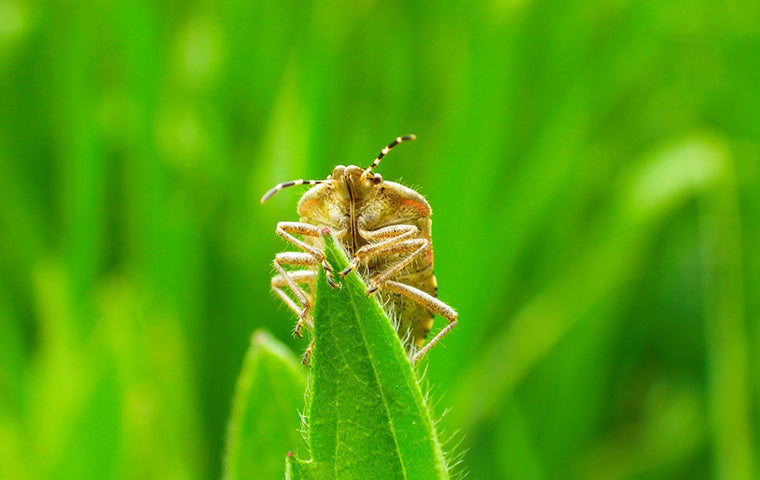Chinch bugs may be a tiny pest, but they can create significant damage to your Jacksonville lawn. Our article lists everything that residents need to know about chinch bugs, how to identify cinch bugs, and how to control chinch bugs with the help of a Jacksonville pest control specialist.
What Is A Chinch Bug?
Chinch bugs are well-known for their ability to destroy lawns and gardens. This pest is small, typically not growing more than 1/16 of an inch as an adult, and is greyish-black in color when fully grown; nymphs may have traces of red and orange on their bodies.
The main problems with cinch bugs are the spots they leave in your yard. Chinch bug damage can leave dead spots all throughout your yard, harming the beauty of your home.
Chinch bug infestations can destroy your lawn; this pest will suck the moisture out of the grass and replace it with a poison that kills the blade resulting in damage that appears similar to drought damage—leaving your yard yellow, green, and brown as it dries up and dies off.
Where Do Chinch Bugs Come From?
Chinch bugs tend to live and breed in hot and sunny environments, preferring arid conditions for the most part. Around your yard, chinch bug problems will start in dry soil areas. As chinch bugs feed, they will move forward looking for fresh grass and leave the grass around that specific area dry, resulting in patches of dead grass that spread throughout your lawn. Chinch bug treatments are essential if you want to stop these pests and the extensive damage they can cause.
Do Chinch Bugs Fly?
Chinch bugs have a pair of white wings, but only a small percentage fly, while others have wings too short to allow it. The chinch bugs that can fly usually don’t choose to utilize their ability when infesting yards.
How Can I Get Rid Of The Chinch Bugs In My Home?
Chinch bug control is essential if you want to get rid of this pest around your home. To start with, you can reduce the factors that may be attracting chinch bugs in the first place, such as:
- Short grass – Chinch bugs prefer short grass as it’s a popular hiding place. However, you also don’t want super long grass either. Keep your grass between 2 1/2 to 3 inches in length to maintain healthy grass.
- Overwatering – Water your lawn heavily but not often. Underwatering will create lawn stress that attracts chinch bugs. They will take advantage of this and start to live and breed in your unhealthy lawn.
- Overfertilized lawns – When fertilizing your yard, look for a low-nitrogen product, and don’t over-fertilize it. Too much nitrogen will increase a chinch bug infestation.
- Compacted soil – Aerating your lawn in the spring and fall will help break up the compacted soil and allow it to breathe and be less welcoming to chinch bugs and other pests.
If you suspect that an infestation of chinch bugs is taking over your lawn, reach out to the experts at Trad’s Pest Control. With our help, we can have your pest problems identified and taken care of in no time, allowing you to maintain a healthy lawn without dealing with the stress of chinch bugs.
Contact us at Trad’s Pest Control today to learn more about chinch bugs or receive the pest control your lawn deserves.

